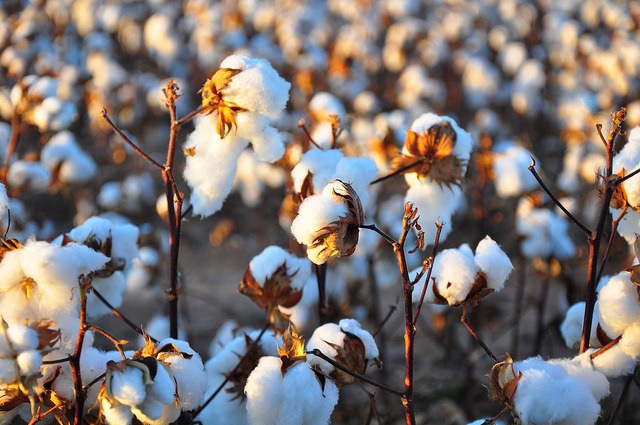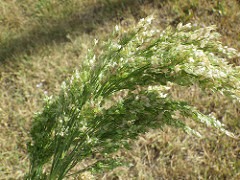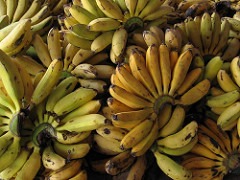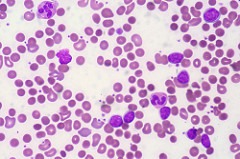
GM/Biotech Crops Report – March 2019
7th March 2019- GM/Biotech Crops Monthly Reports (BELOW) form part of BCPC’s free three-tier Biotech Crops Info service.
- This service also includes a weekly round-up of news from around the globe – see BCPC Newslink GM Crops section.
- Plus – Free access database on over 300 GM/biotech products covering 23 crops in the global market visit BCPC’s GM/Biotech Crops Manual – Register here for free access.
Already registered? Click here
GM/Biotech Crops Monthly Report March 2019
 |
Gene-edited animals to fight poverty in Africa Pic: Trung Nguyen |
|---|---|
| Gene therapy for macular degeneration Researchers in Oxford are using a synthetic gene injected into the eye to see if they can halt the degeneration of the macular region responsible for detailed eyesight at the back of the eye. This is one of the most common form of partial blindness in old age. More Pic: Jessy |
 |
 |
Broomcorn millet sequenced Broomcorn millet is one of the earliest domesticated plants and is the most water-efficient cereal. Now that the genome has been sequenced by the Chinese Academy of Science it is hoped that the information gained will help cereal breeders develop even more drought-tolerant varieties. More Pic: Matt Levin |
| More efficient editing of wheat CRISPR-Cas9 editing of wheat currently relies on large numbers of transgenic plants to obtain specimens with the desired modification due to the production of many off-target mutations. However, the University of Missouri has developed an Agrobacterium-mediated delivery system that greatly improves the accuracy of editing. More Pic: Bex Ross |
 |
 |
Cotton with improved drought tolerance Mosses are usually associated with damp conditions but researchers at the Chinese Academy of Science have discovered that over expression of the ALDH21 gene from mosses in cotton and tobacco improves drought tolerance, the ability to cope with saline soils and improves fibre quality in cotton. More Pic: Kimberley Vardeman |
| Banana streak virus Bananas are known to be at risk of epidemics because of the lack of genetic diversity. Musa species with the B genome are not commercialised because they are at risk from the currently incurable banana streak virus but now researchers at the International Institute of Tropical Agriculture have discovered a way to inactivate the viral DNA using CRISPR editing in a related plantain species. This knowledge will allow the diversification of the cultivated bananas and so reduce the risk of an epidemic destroying the world’s banana industry. More Pic: Handi Mark |
 |
 |
An egg a day keeps the doctor away Anti-cancer and anti-arthritis drugs are currently produced in drug factories but now researcher at Roslin technologies in Edinburgh have edited the hen genome so that these drugs are produced in the eggs that the hens lay every day. This production system is estimated to be 100 times cheaper than producing the drugs in factories but can you cook the eggs before you eat them? More Pic:Matthew Murdoch |
| Switchable gene editing Scientists that the University of California have refined the CRISPR editing system to include a switch called ProCas9. This allows inserted genes to be turned on or off by the application of certain external factors such as a viral infection. More Pic:Brad Wilmot |
 |
 |
Rothamsted camelina Camelina edited to produce omega-3 fatty acids is to be field tested by Rothamsted over 5 years up until 2023 if their application to Defra is granted. More Pic: Peter O’Connor |
| Folate in maize and wheat Some people suffer from a lack of the B12 vitamin (folate) and this leads to a form of anaemia and a lack of energy. Currently these people are treated with regular injections to boost their B12 levels but now the Chinese Academy of Science has spliced a gene from soybean in to wheat and maize which has boosted the levels of folate in these crops. It remains to be seen whether this will be of benefit to those suffering from folate deficiency though. More Pic: Ed Uthman |
 |
 |
Can GM save the citrus industry?
Huanglongbing (green dragon disease) is caused by the bacterial disease Candidatus Liberibacter asiaticus that spreads through the tree canopy, causing decline and then death of the tree. Before a GM ‘fix’ is developed the University of Illinois has conducted a survey of people’s attitudes to GM crops with mixed results. Surely if the only citrus fruits on offer are GM because the non-GM have all died off people will buy what is available. More Pic: USDA
|
THE LATEST ADDITIONS TO THE GM/BIOTECH DATABASE ARE:
• Amazingly the latest approval of a GM crop globally is the cowpea resistant to Lepidopteran insects reported in last month’s Biotech Crops Monthly Report.
FOR INSTANT ACCESS TO GM BIOTECH MANUAL CLICK HERE (Registration required)
Already Registered? Click here to access

